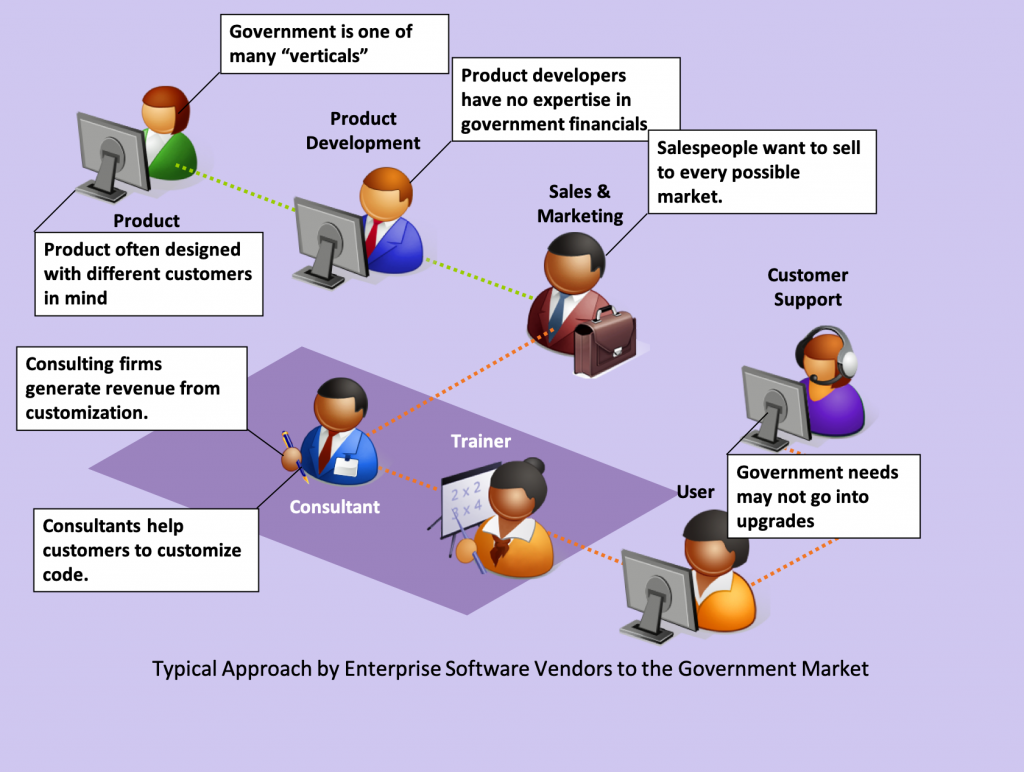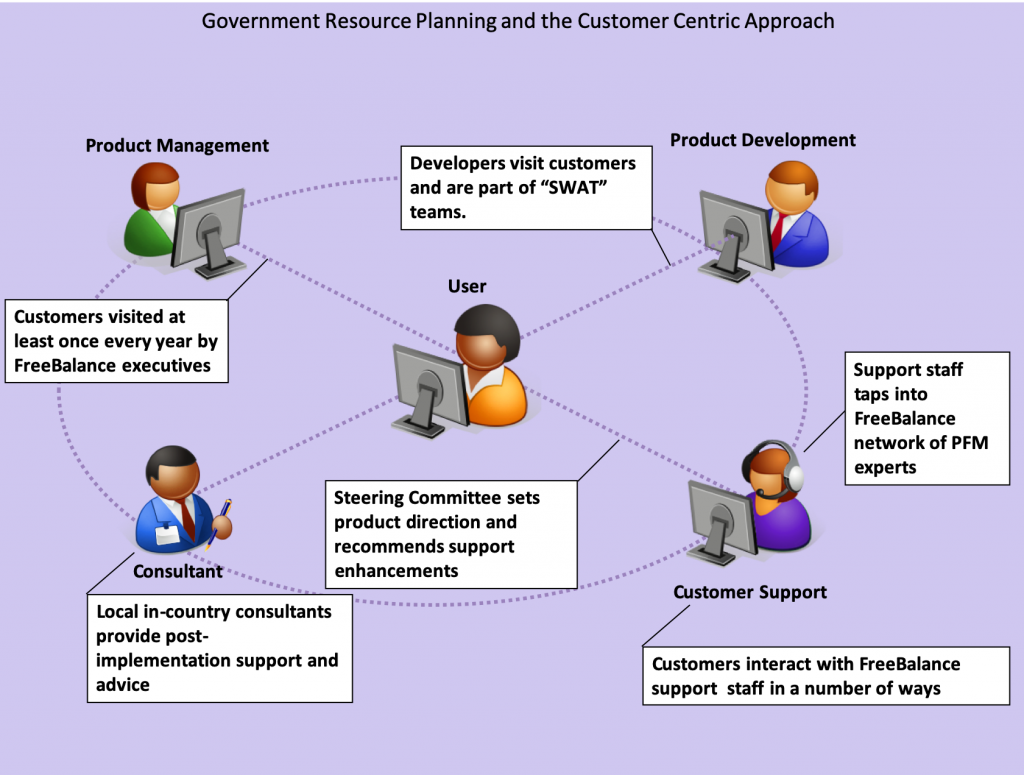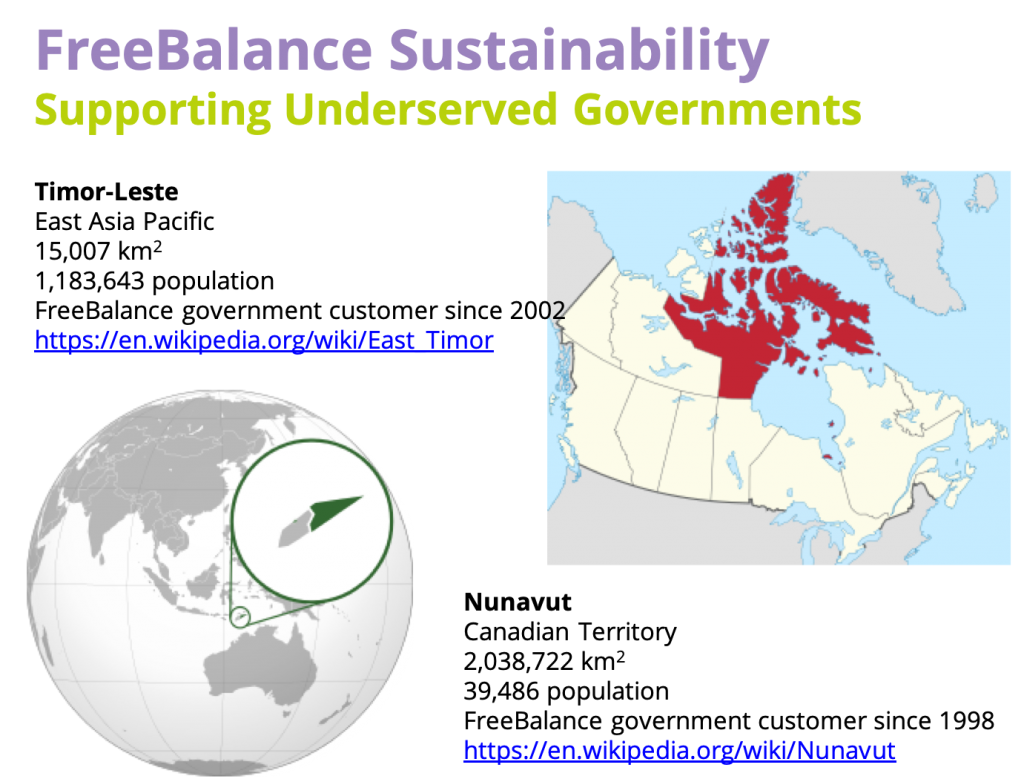FreeBalance Optimizes Customer Service through a “Glocal” Approach
By the numbers, FreeBalance supports government implementations using the FreeBalance Accountability Suite in:
- 30 countries and growing
- all World Bank regions
- 16 time zones
- small to very large countries by size and population
Why it matters: our mission, as a social enterprise, is to make Public Financial Management (PFM)
- reform sustainable through software progressive activation where technology supports modernization directions
- financially sustainable by making it inexpensive to support legal and process reform
Yet, many countries are stuck with Financial Management Information Systems (FMIS) that are neither reform or financially sustainable
- While governments that leverage the FreeBalance Accountability Suite continue to modernize
How can a medium-sized Canadian company support governments around the world?
- Surely we need a big presence to support governments…
- …despite governments experiencing poor support and poor sustainability from large global companies with local presence
Our customer-centric support process innovation began by rejecting traditional vendor approaches and looking at the entire product sustainability lifecycle

What is the FreeBalance support innovation?
- Small focused expert teams help – don’t be fooled by notions that more people is more – it’s about quality, not quantity
- All staff who implement, support, and develop our software understand PFM
- As our President and CEO, Manuel Pietra, tells us:
- We have only 1 customer per country: the government
- There is no such thing as a government customer who is not a key customer
- All customers are customers for life
- And, the use of a “Glocal” model that is more locally adaptable than traditionally thought

What is a “Glocal” model? Our approach:
- Create highly adaptable Government Resource Planning (GRP) software for local contexts
- Hire local people with PFM knowledge who bring language and social context skills for implementations
- Build capacity via global experts (our local hires and public servants)
- Retain local staff after implementations for advisory services and system sustainability
- Integrate our local consultants into our service network
Local personnel tap into the FreeBalance structure of global second and third line support by experienced help-desk staff who have PFM and GRP expertise
- Leverage PFM domain knowledge in similar contexts for advice
- Leverage physical and virtual offices operating in all times zones integrated with our local offices
- Activate cross functional SWAT teams when major problems occur
- Improve support processes based on feedback from the FreeBalance International Steering Committee
- Engage governments by direct visits from FreeBalance executives
Most importantly: FreeBalance scales to make GRP implementations sustainable in traditionally remote and underserved markets
- For example, from Timor-Leste to Nunavut

…because that’s our social responsibility & that’s why we call this sustainability services rather than “support”
[images & statistics via wikipedia]
By the numbers:
- Nunavut, in Canadian north is over 100 times larger than Timor-Leste with a population almost 30 times smaller than Timor-Leste
- Nunavut is larger than Mongolia (also a FreeBalance customer), and far less populous
How do we build capacity for new hires in the Glocal approach? We:
- Hire local staff with expertise and potential
- Allocate local staff to participate in government workshops and mandatory training, part of our implementation methodology
- Certify local staff with required skills through online courses and tests
- Engage our global mentoring network to help
Why don’t more firms use Glocal approaches?
- Client billing is more lucrative when parachuting in global experts with big per diem rates into countries
- We believe in financial sustainability for governments meaning that we use local staff with local rates as much as possible
- Risk is perceived when using local staff by many global companies who don’t recognize the power of diversity
- We believe that local staff reduces implementation and support risk because they understand the country context, internal government politics, and social communications
- Systems integration firms traditionally implement Commercial-Off-The-Shelf (COTS) software creating a support disconnection: the COTS manufacturer supporting customers does not understand the customer context
- We believe that we should be involved in all implementations to reduce risk and that local staff who understand the configuration also support governments
- We also believe that our products and services improve because of direct implementation involvement
